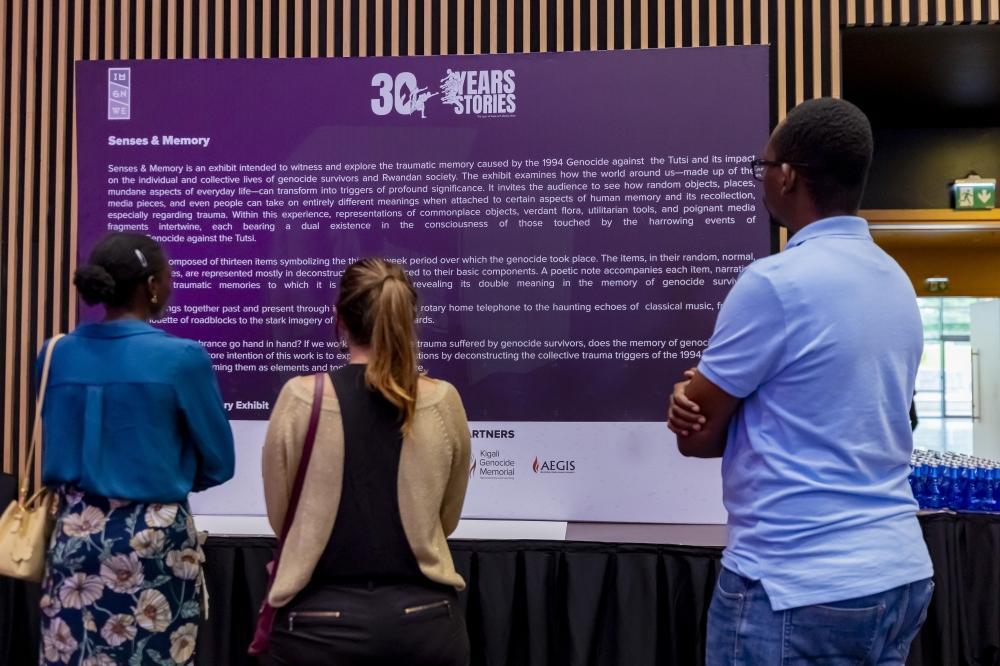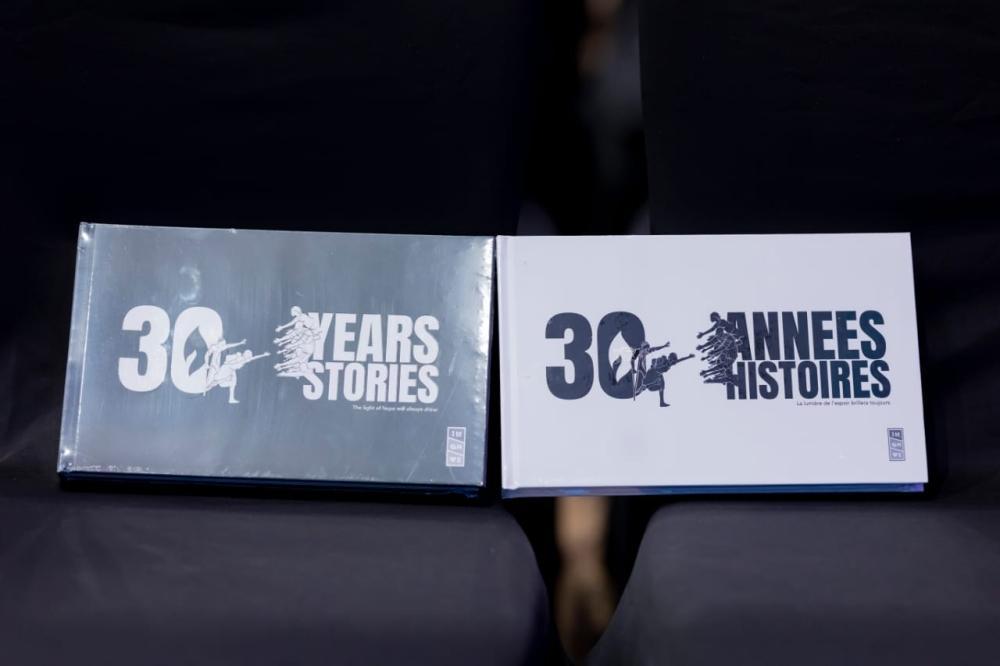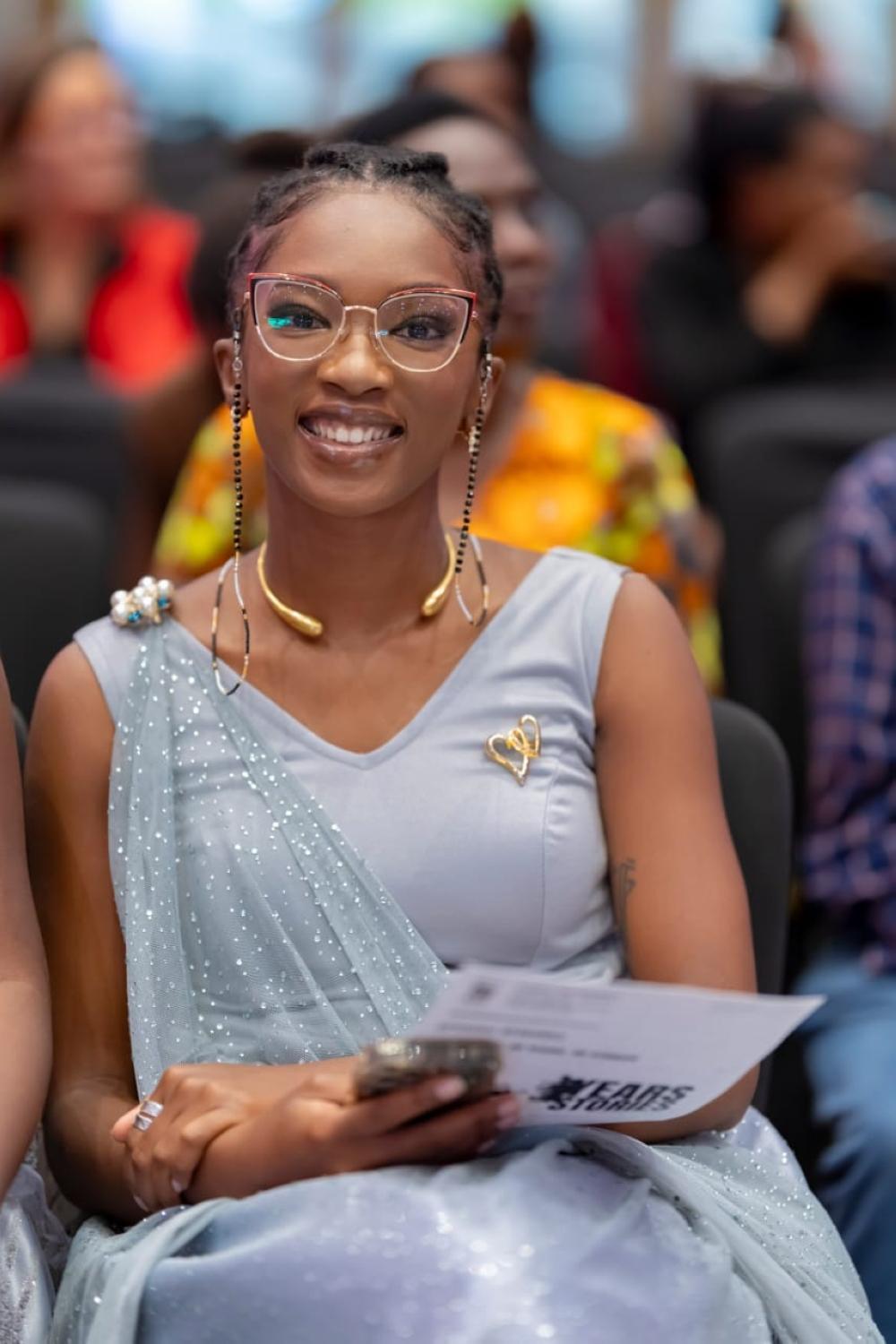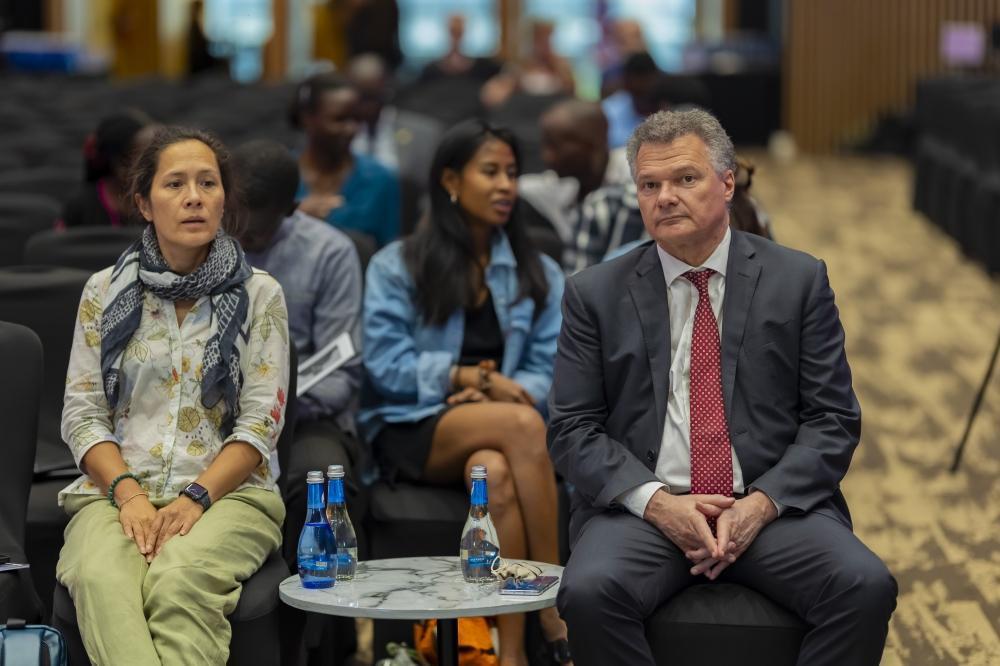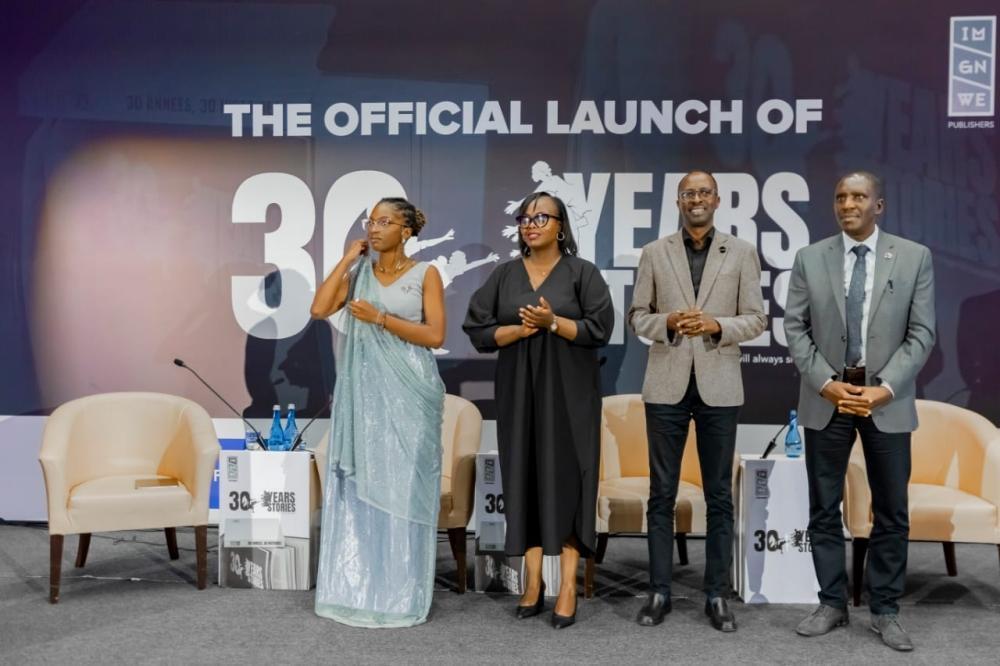Africa-Press – Rwanda. Imagine We Rwanda on Wednesday, April 30, launched a new book titled 30 Years: 30 Stories, a powerful work reflecting Rwanda’s journey of resilience and recovery from the ashes, three decades after the 1994 Genocide against the Tutsi.
The 200-page collection brings together deeply personal accounts from survivors, repentant perpetrators, business leaders, religious representatives, artists, and former refugees—each reflecting on the impact of the genocide and the long journey of healing and remembrance.
Copies of 30 Years, 30 Stories. The book is available in English and French-courtesy
The book launch event, held at Kigali Convention Centre, gathered survivors, dignitaries, European Union and French Embassy representatives in Rwanda, and a wide range of Rwandan voices committed to remembrance and reconciliation.
Dominique Alonga, the founder of Imagine We Rwanda and the driving force behind 30 Years: 30 Stories, is the first to admit that the process was anything but smooth, explaining that the project, which initially envisioned during the 30th commemoration, was born out of a shared curiosity: How had people survived? What had they seen? And how were they healing now, three decades later?
What began as an idea to document stories quickly became a test of emotional resilience.
“We thought the interview process would be short, but it took a full year. Producing such a quality book takes time and an emotional toll. A lot of survivors would have their trauma during the interview, and it had to be stopped. We also had a lot of trauma as well, hearing these stories over and over again,” Alonga said.
Dominique Alonga, the founder of Imagine We Rwanda, speaks during the launch of 30 Years, 30 Stories-courtesy
She continued to explain that the selection process of who featured in the book was deliberate, and they aimed for wide representation. Most provinces were included, and they collaborated with the Kigali Genocide Memorial to identify individuals, especially those who had never spoken publicly before.
“Survivors formed the majority of the 30 voices, but there were also former refugees, religious leaders from both Muslim and Christian communities, and members of the arts and business sectors,”
“For the perpetrators, we only included those who had been forgiven by His Excellency (president Paul Kagame) and were truly repentant. We didn’t want to tell the stories of those still in denial,” she added.
Business people interviewed had to have lived through the genocide era, providing insight into how companies were looted, how bank records were recovered, and how institutions rebuilt themselves after total collapse.
The inclusion of sectors like arts and religion was also intentional, showing how healing can come through music, theatre, or faith.
Alonga added that, at its core, the goal was to preserve memory but also emphasize mental health. Each story needed to answer one crucial question: How are you healing?
“Some are healing through forgiveness, some through creating businesses, some through art, and some through building families. This project became part of their healing—and ours, too. The result is a raw, honest, and deeply human anthology—one that took far longer than expected because it refused to rush people’s pain,” she said.
French envoy to Rwanda Antoine Anfre was among guest attendees at the book launch
The launch of 30 Years: 30 Stories was a raw and emotional event, centered on truth rather than celebration.
Irma Ihumure and Sonia Mugabo, both featured in the book, shared powerful testimonies about survival and the difficult path of healing.
A guided reflection asked, “What does remembrance mean to you?”, followed by a panel discussion moderated by Manzi Rugirangoga with Irma Ihumure, Sonia Mugabo, Fiston Mudacumura, and Hope Azeda.
The conversation was honest and heavy, highlighting that healing is ongoing and often painful. An open audience Q&A brought more voices into the room, underscoring the weight of collective memory.
Yannick Cyusa, one of the attendees at the launch, described the event as “very enriching,” particularly in how it highlighted survivors’ stories and the urgency of preserving memory.
He emphasized the responsibility of young people to carry these stories forward.
“Our parents, our aunties and grandmothers have been through a lot… The only way to tell an authentic story is through listening to one who has passed through these times,” said Cyusa.
For More News And Analysis About Rwanda Follow Africa-Press

